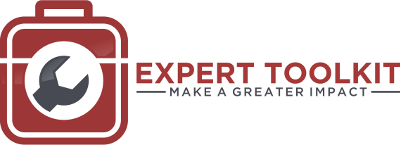Building your personal brand
Starting your career is an exciting and challenging journey. As you embark on this journey, it's important to establish your brand from the get-go. Your brand is essentially your reputation and how you are perceived by others. It's the sum of your values, personality, and expertise, and it's what sets you apart from your competitors.
So, why is establishing your brand important at the beginning of your career?
Here are a few reasons:
- It helps you stand out in a crowded field. Most likely, you are in a competitive industry, and it can be tough to get noticed. By establishing a clear and unique brand, you can differentiate yourself from the competition and make a strong impression superiors, potential employers, partners and clients.
- It helps you build credibility. A strong brand can help you establish yourself as an expert in your field. By consistently delivering high-quality work and consistently communicating your values and expertise, you can earn the trust and respect of your colleagues and clients.
- It helps you define your career path. Establishing your brand can help you clarify your career goals and direction. By identifying your strengths and passions, you can focus on building a career that aligns with your values and goals.
Raising your profile and getting noticed without looking like you're full of self-importance can be a delicate balance. Here are a few tips for doing so:
- Focus on your work. The best way to get noticed is to consistently deliver high-quality work. By doing your best on every project and going above and beyond for your clients and colleagues, you can build a reputation for excellence.
- Network wisely. Networking is an important part of building your brand, but it's important to do so in a way that doesn't come across as self-promotional. Instead of constantly talking about yourself, focus on genuinely connecting with others and learning from their experiences.
- Use social media wisely. Social media can be a powerful tool for building your brand, but it's important to use it wisely. Avoid constantly posting about yourself and instead focus on sharing relevant and valuable content that aligns with your values and expertise. When trying to build your brand as a new consultant, there are a few things you should definitely avoid:
- Don't make promises you can't keep. It's important to be confident, but it's even more important to be realistic. If you overpromise and underdeliver, it'll be tough for people to trust you in the future.
- Don't neglect your work. Building your brand is important, but it doesn't give you an excuse to slack off. Make sure you're putting in the effort and delivering high-quality work consistently.
- Don't be a bragger. It's okay to talk about your skills and accomplishments, but don't make it all about you. Nobody likes a boastful colleague.
- Don't ignore your personal brand. Your personal brand is just as important as your professional brand. Make sure you're presenting a positive image online and in person.
- Don't ignore feedback. Feedback is a valuable tool for improving and growing as a professional. Don't take it personally and use it as an opportunity to learn and grow.
By avoiding these mistakes, you can effectively build your brand and set yourself up for success in the consulting industry. Just make sure you're being genuine, working hard, and staying humble.
Stories from the field:
“As a new consultant, I knew that establishing my brand was going to be crucial for my success in the industry. So, I set out to make connections with senior partners, look for ways to make a contribution, and help others whenever I could.
One of the first things I did was reach out to a few senior partners at the firm to introduce myself and ask if they had any advice for a new consultant. I was pleasantly surprised when several of them agreed to meet with me for coffee. During these meetings, I asked lots of questions and listened closely to their advice. I also made a point to follow up with them after our meetings to thank them for their time and let them know how I was implementing their advice.
In addition to building relationships with senior partners, I also looked for ways to make a contribution at the firm. Whenever I had downtime between projects, I offered to help out on other teams or take on additional responsibilities. I found that this not only helped me build my skills and experience, but it also helped me get noticed by my colleagues and superiors.
Finally, I made a point to help others whenever I could. Whether it was offering to review a colleague's presentation or simply offering a listening ear when someone needed to vent, I found that by being a supportive team player, I was able to build strong relationships with my colleagues and establish my brand as someone who was reliable and easy to work with.
By following through on my commitments, building relationships with senior partners, looking for ways to make a contribution, and helping others, I was able to establish my brand as a new consultant and set myself up for success in the industry.”
